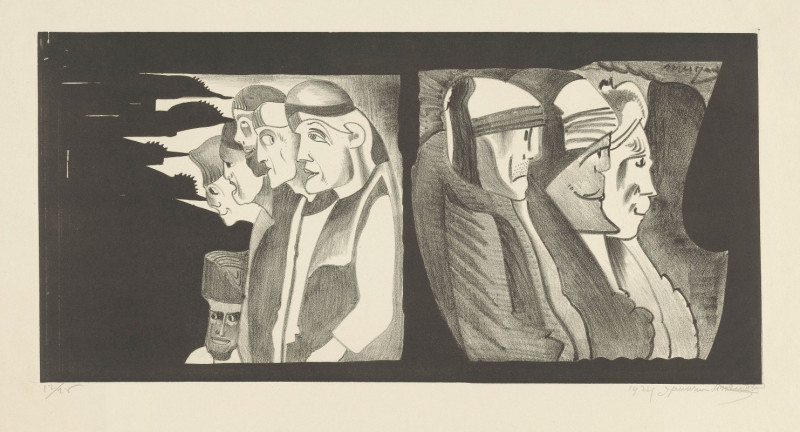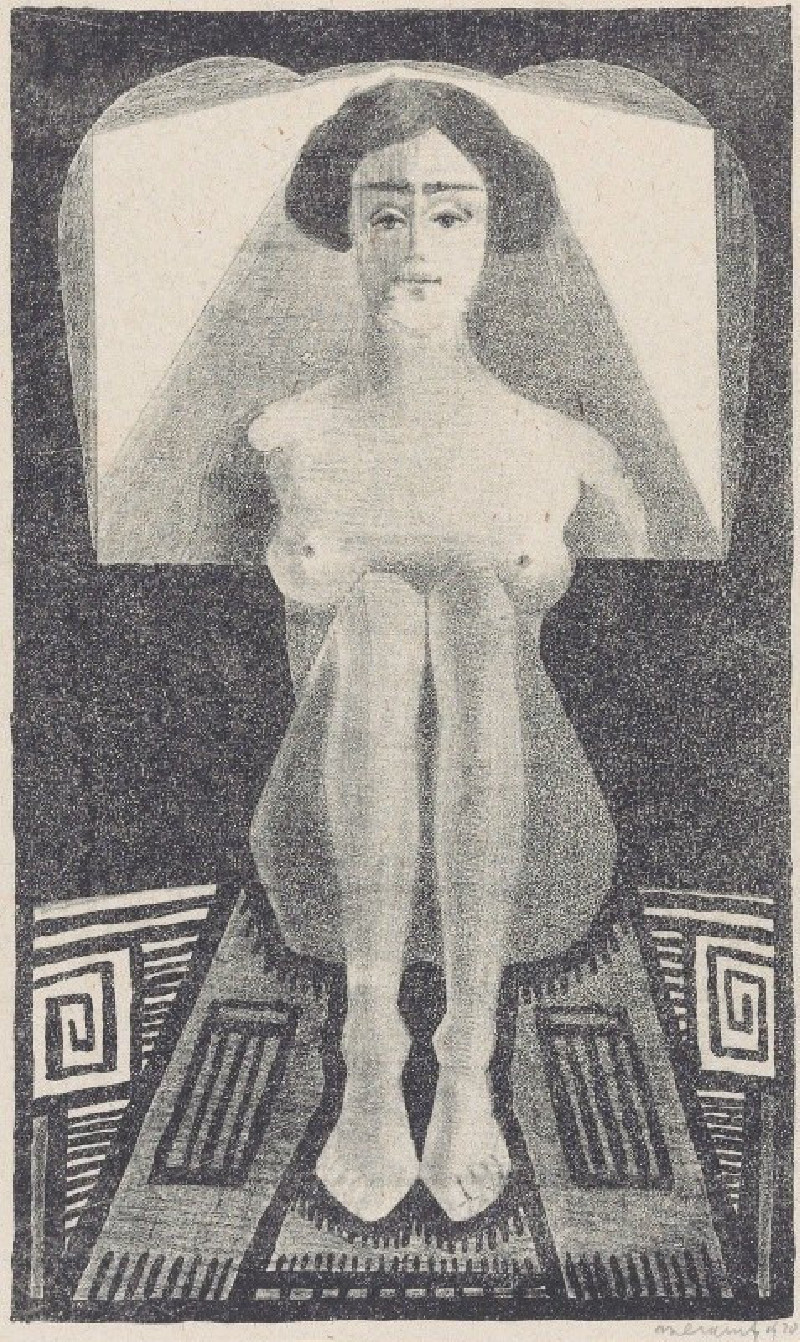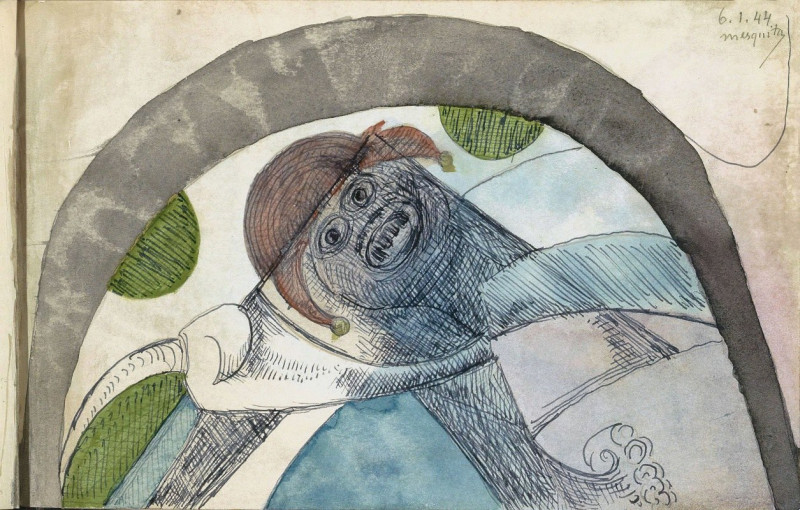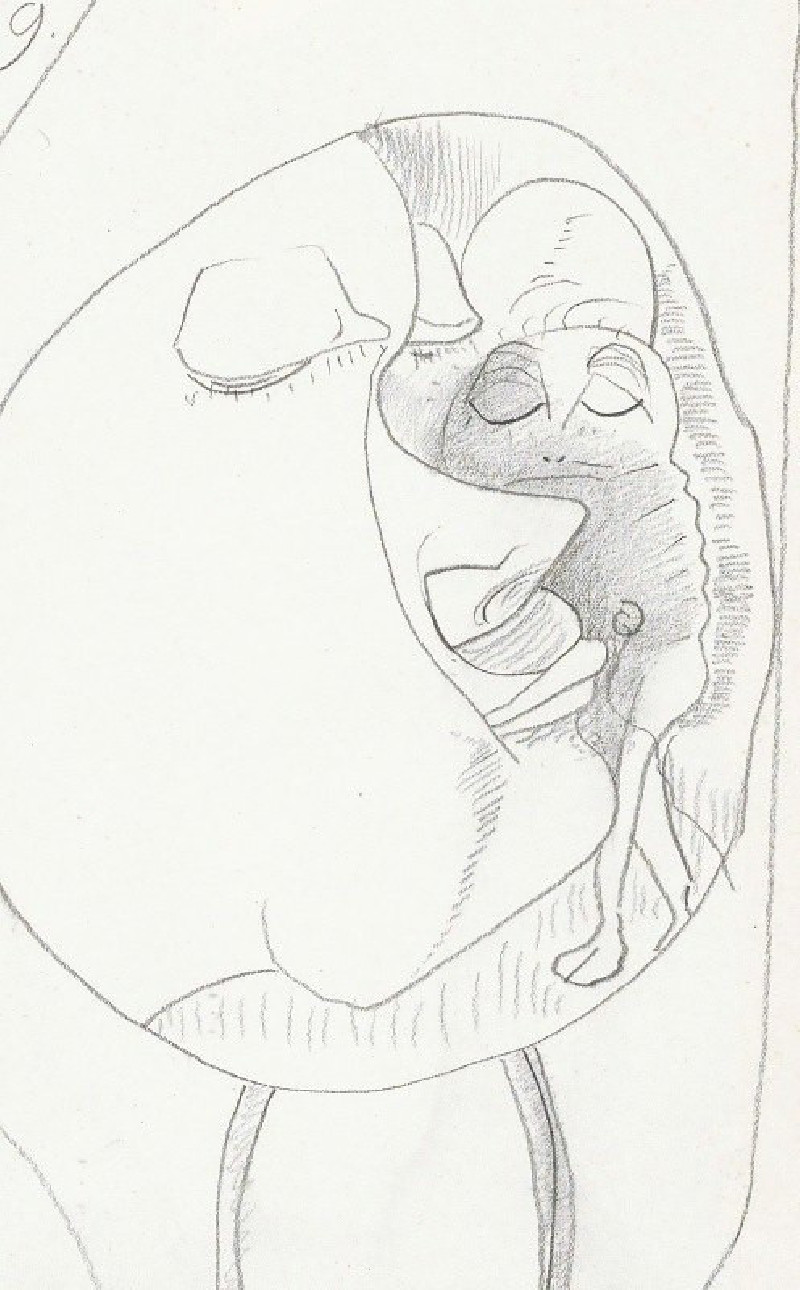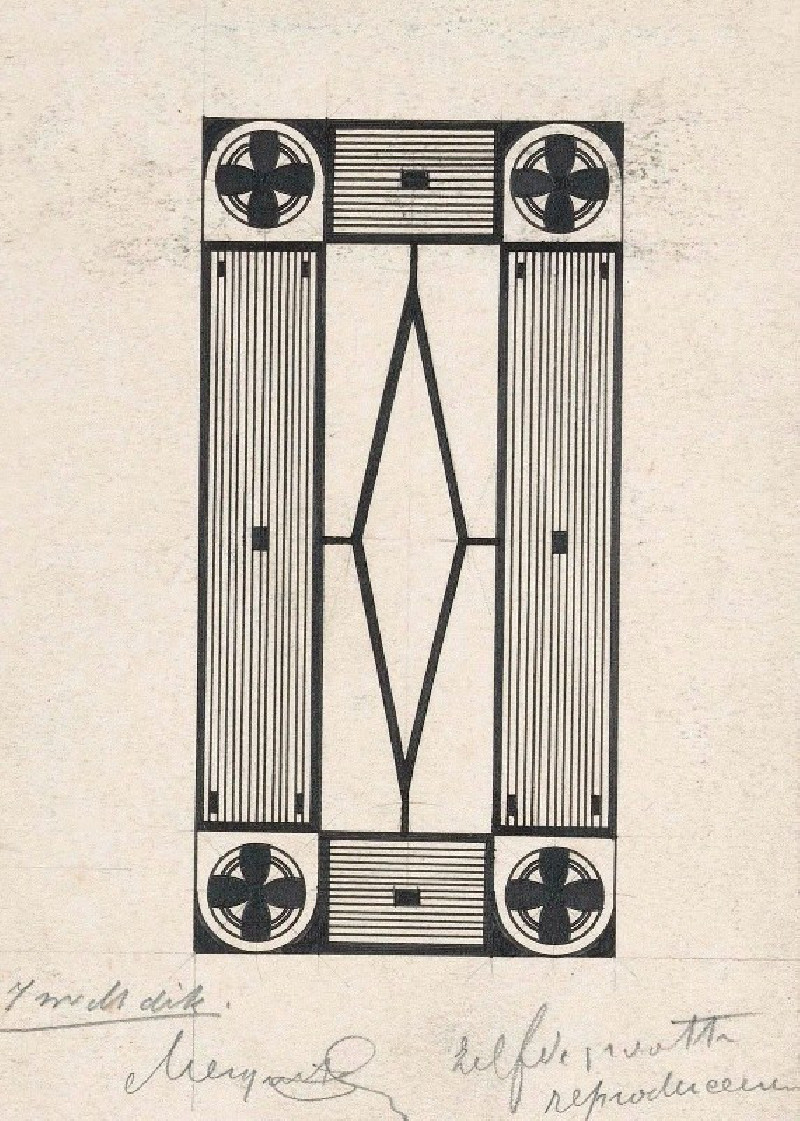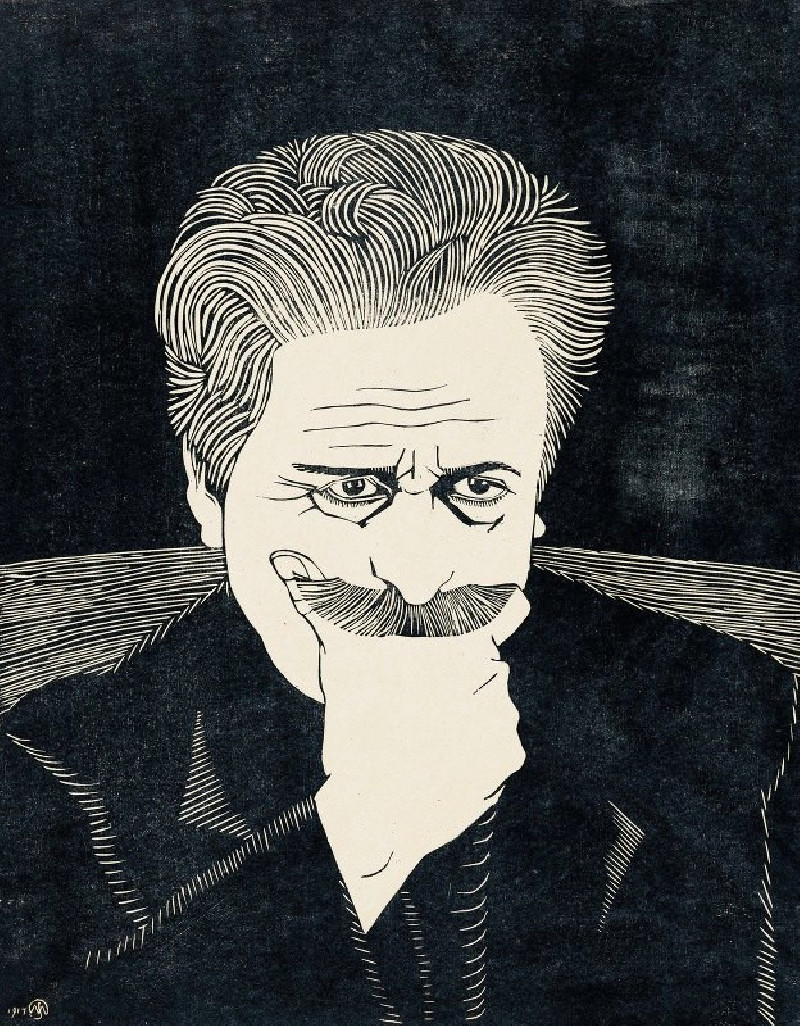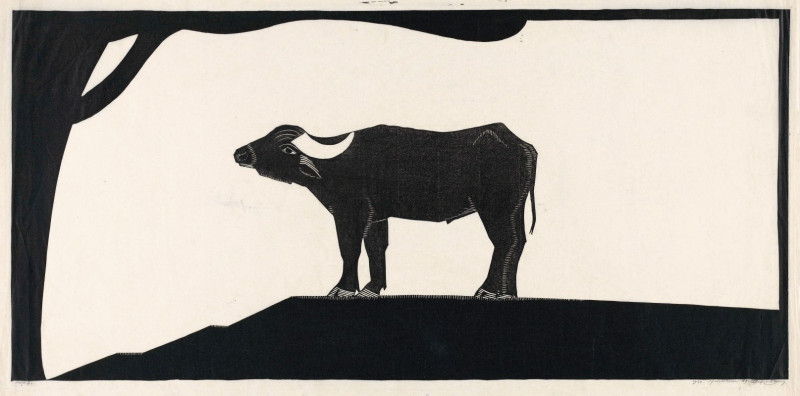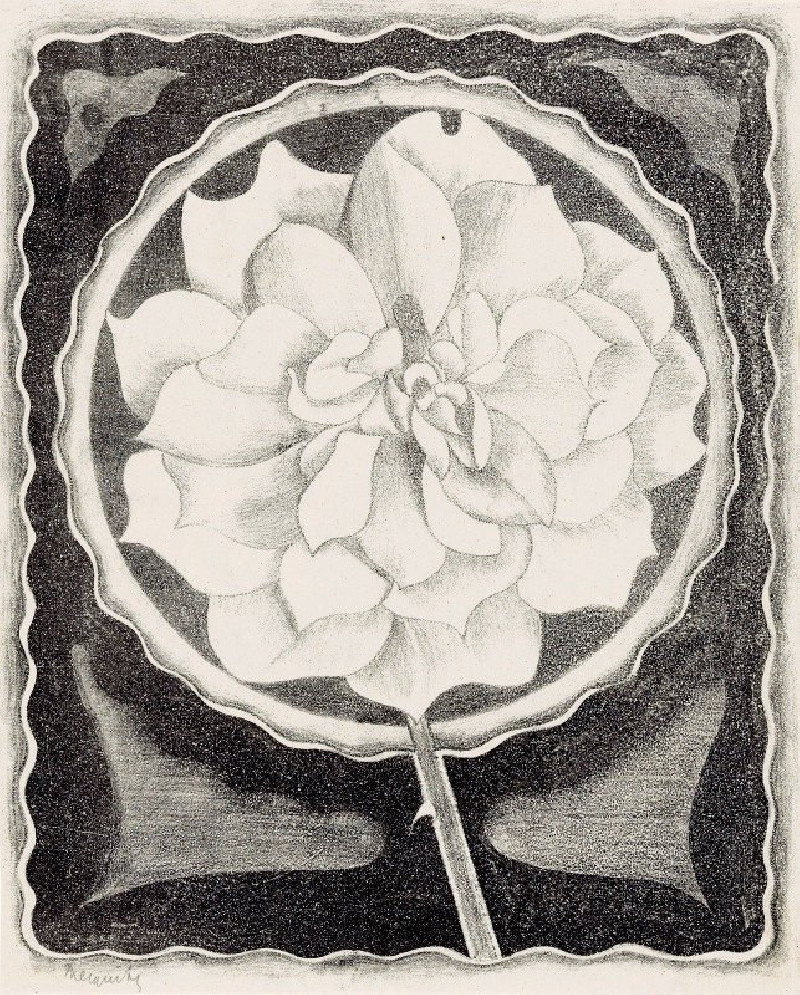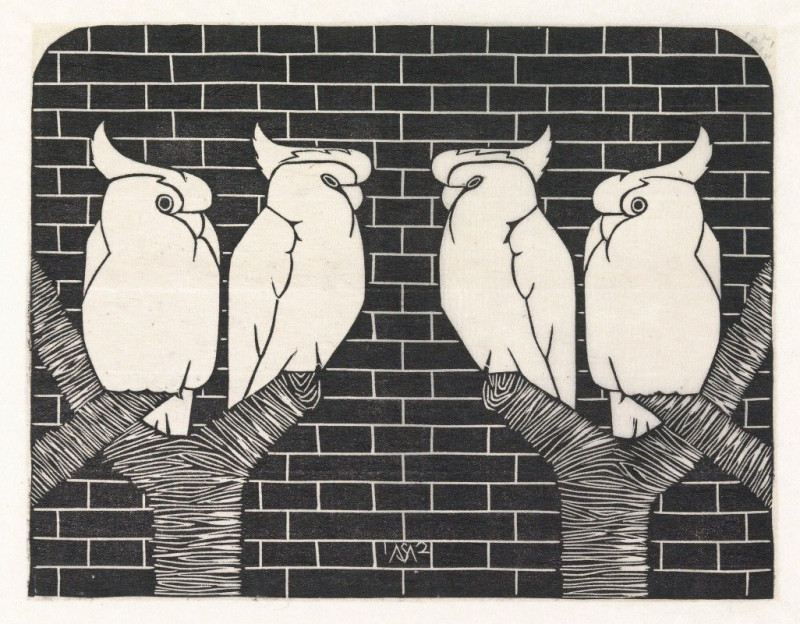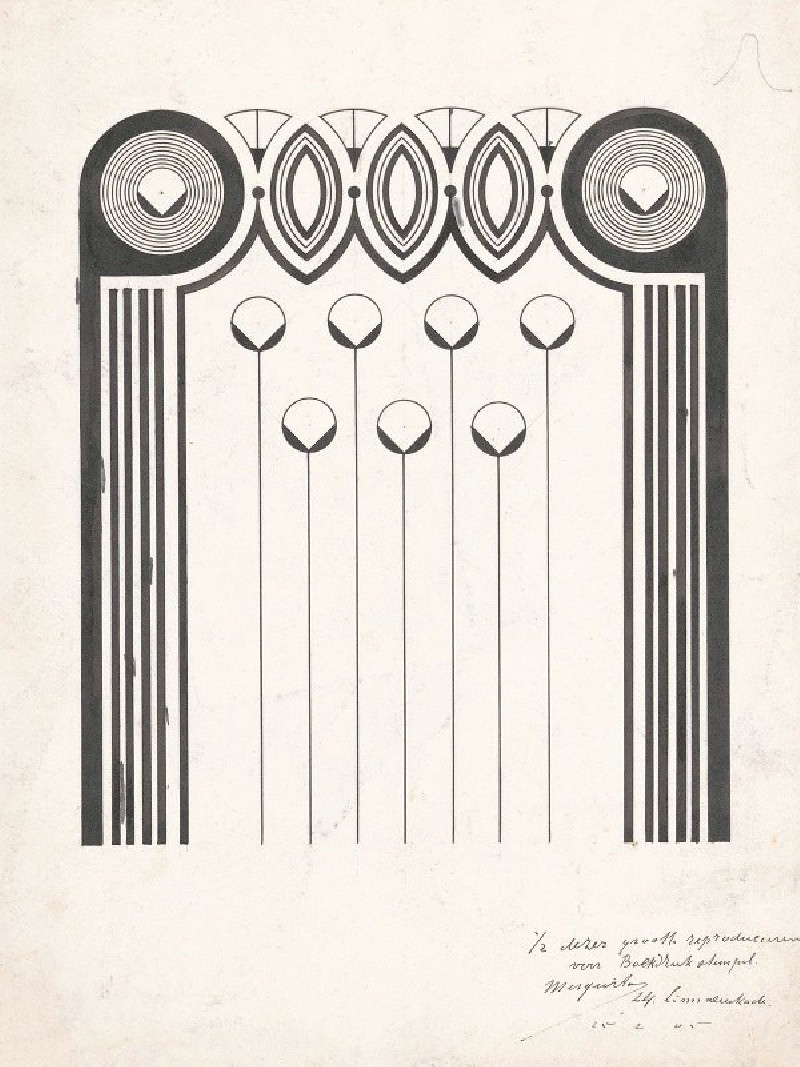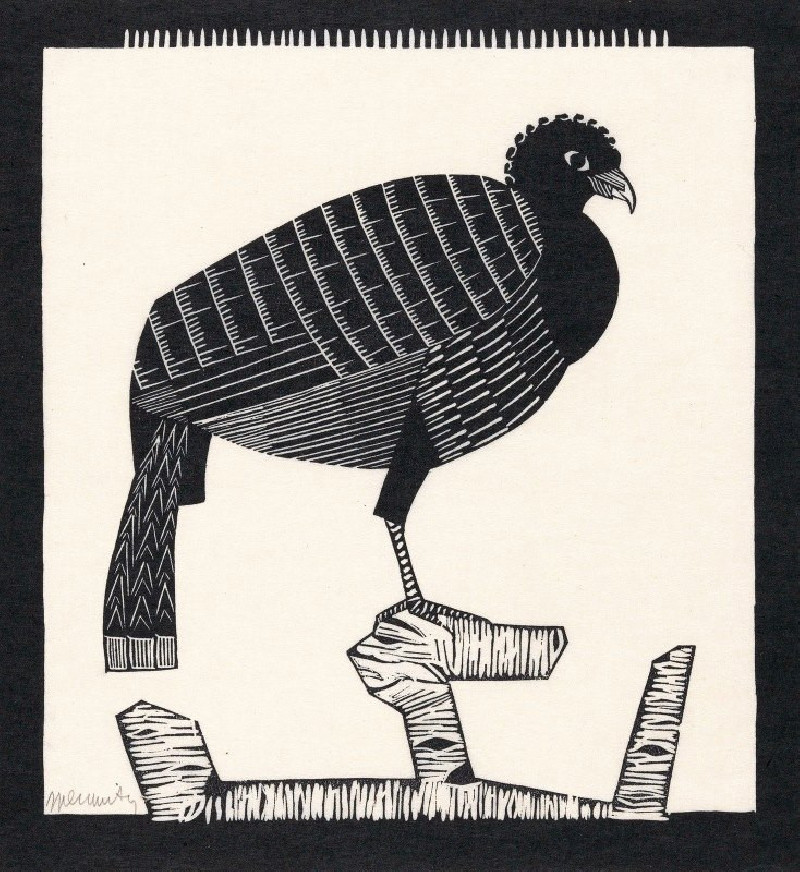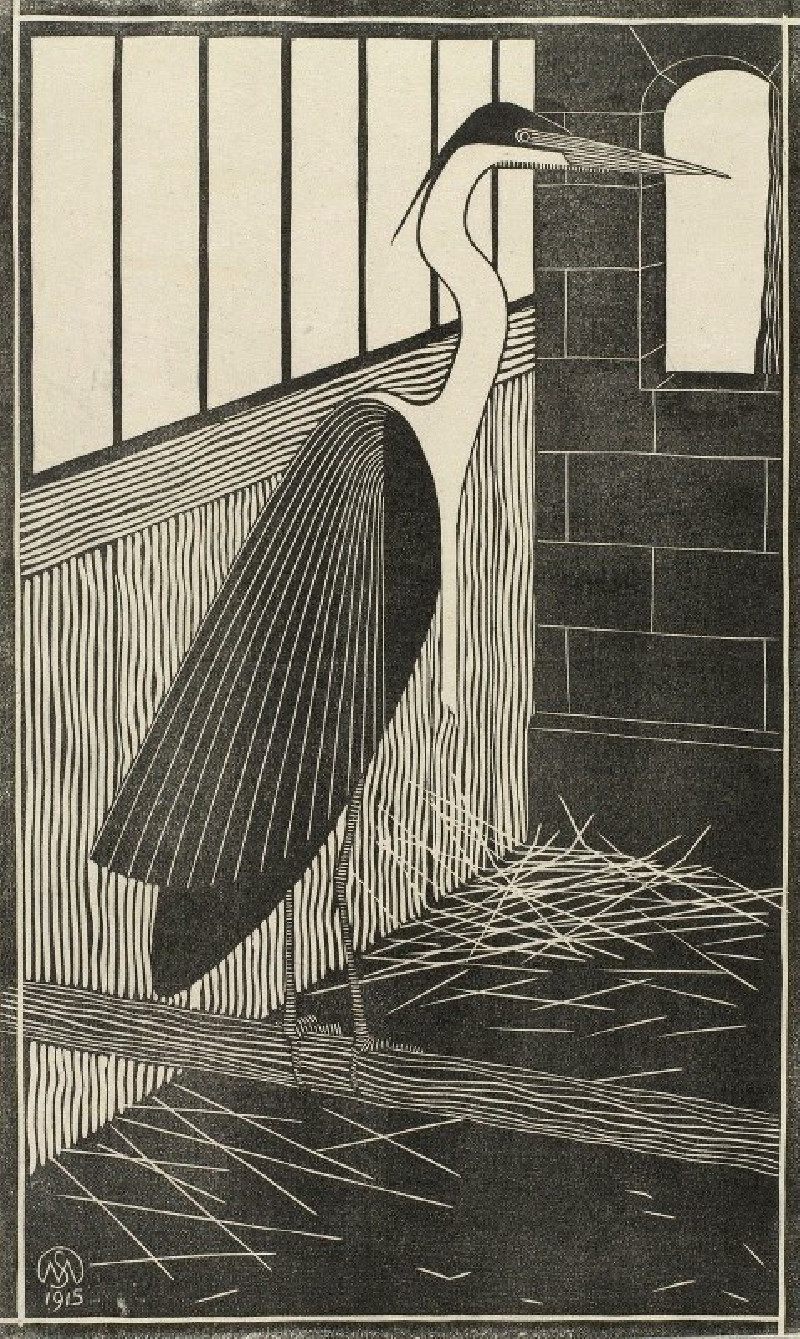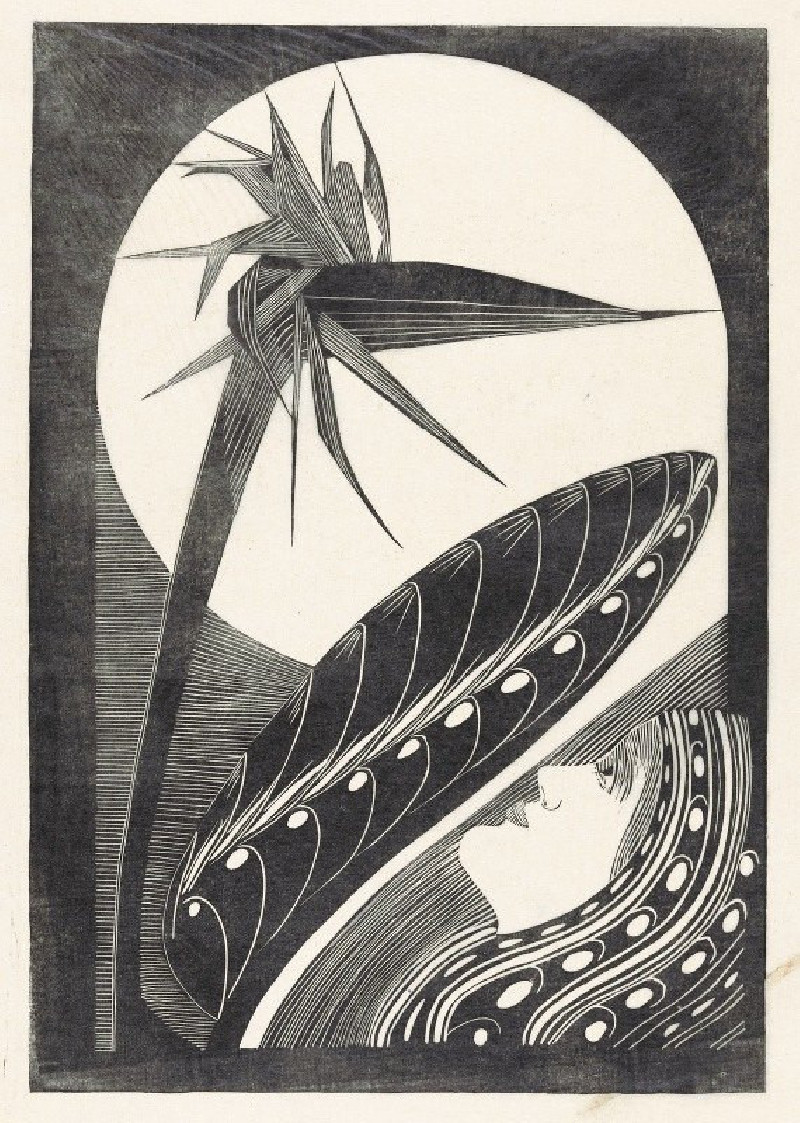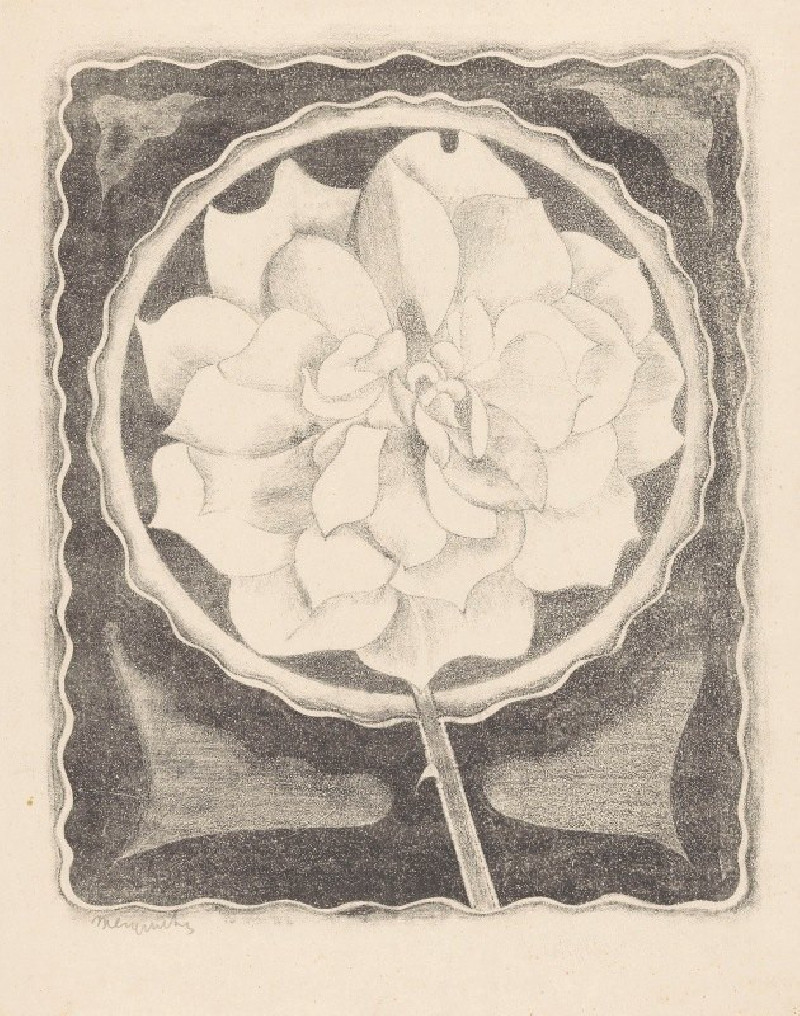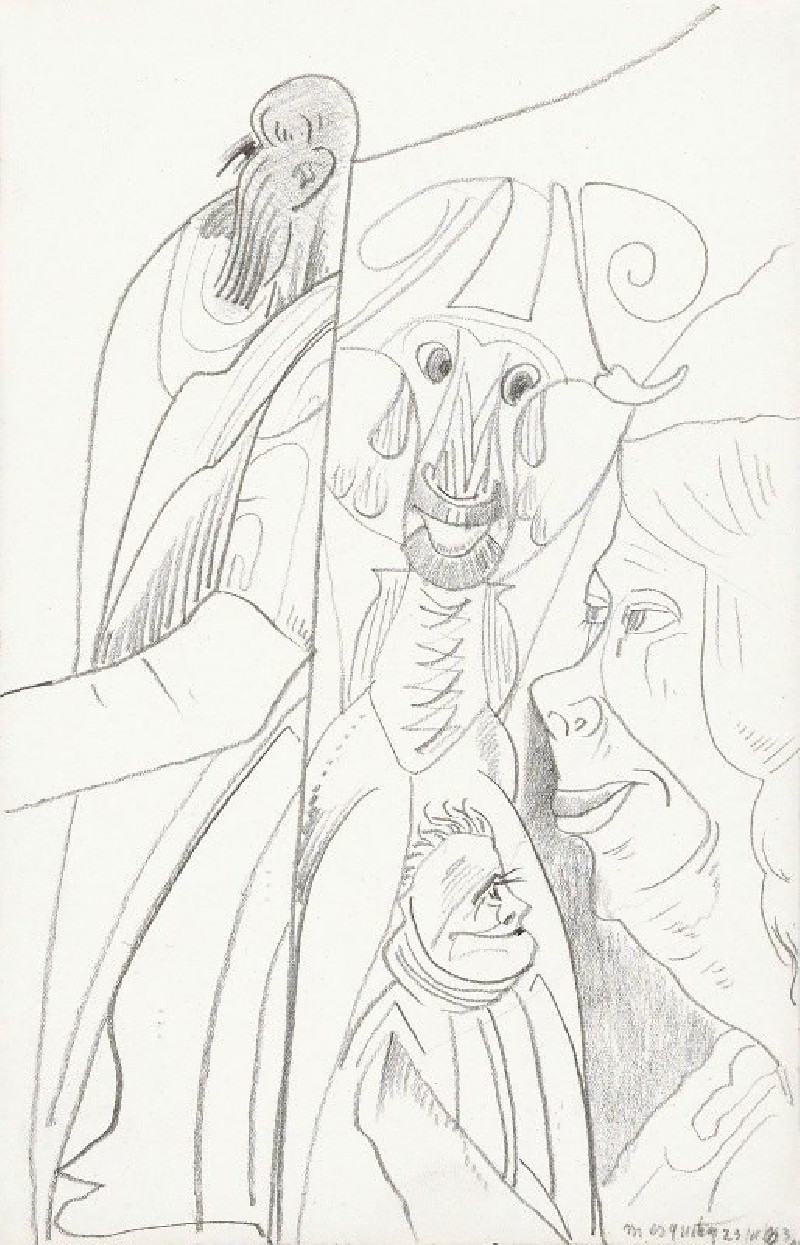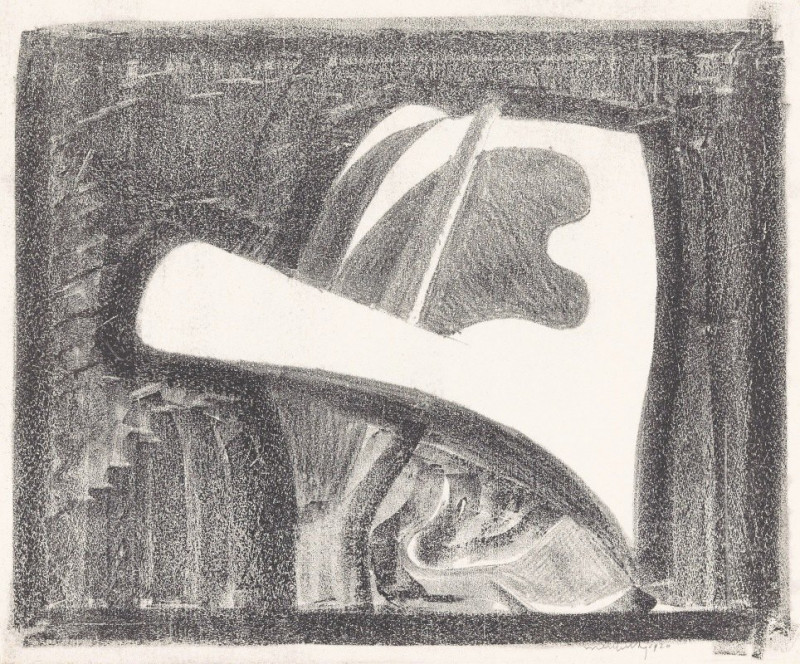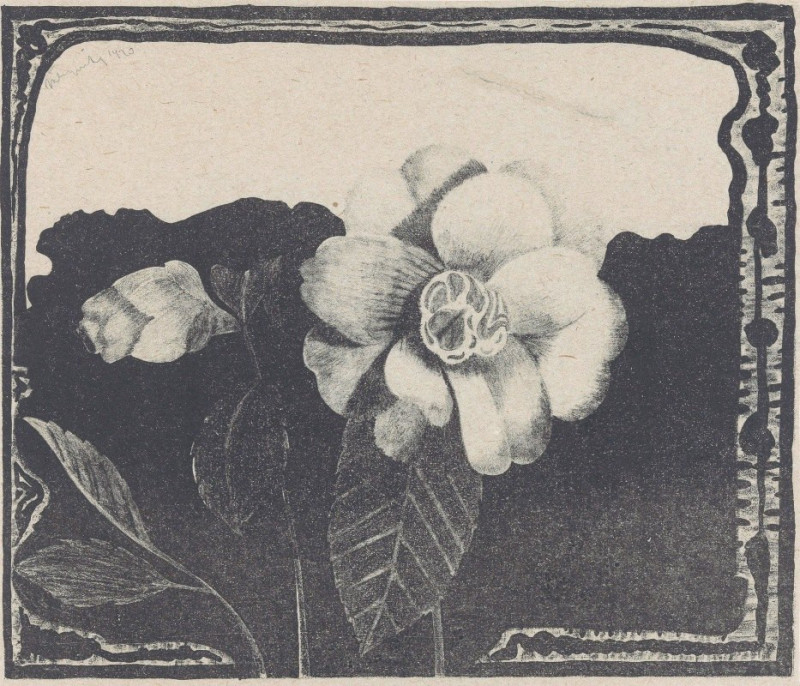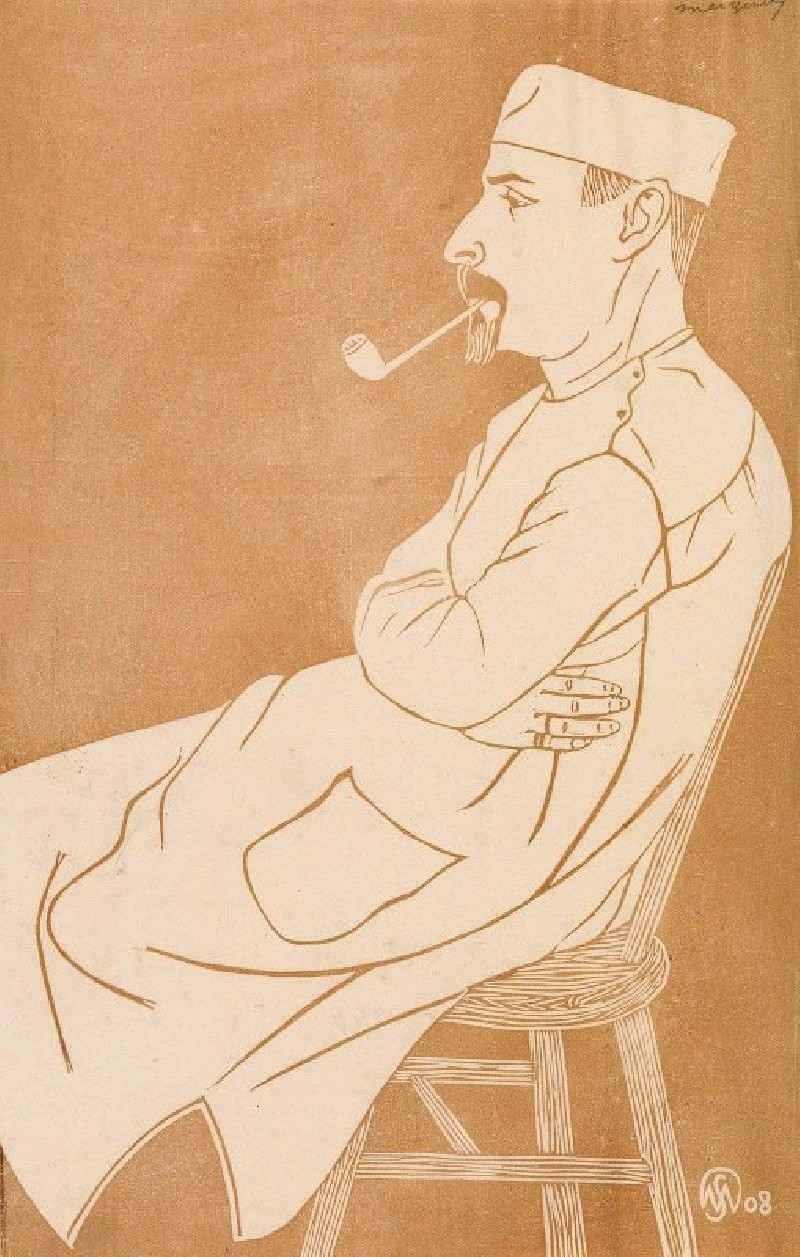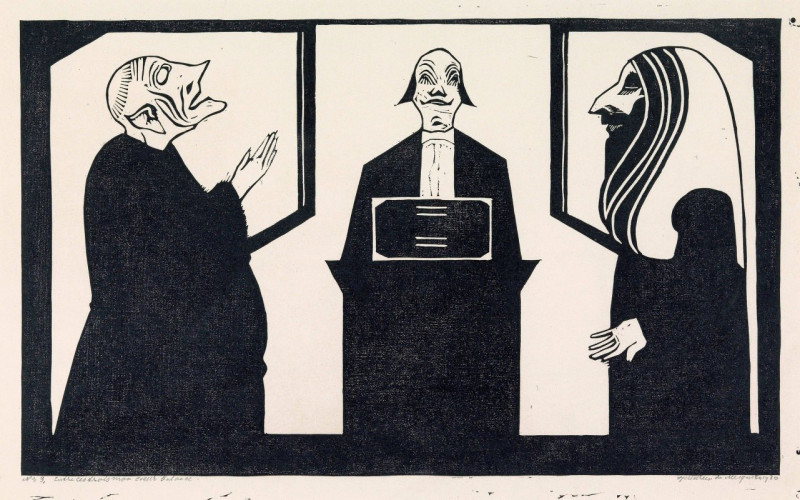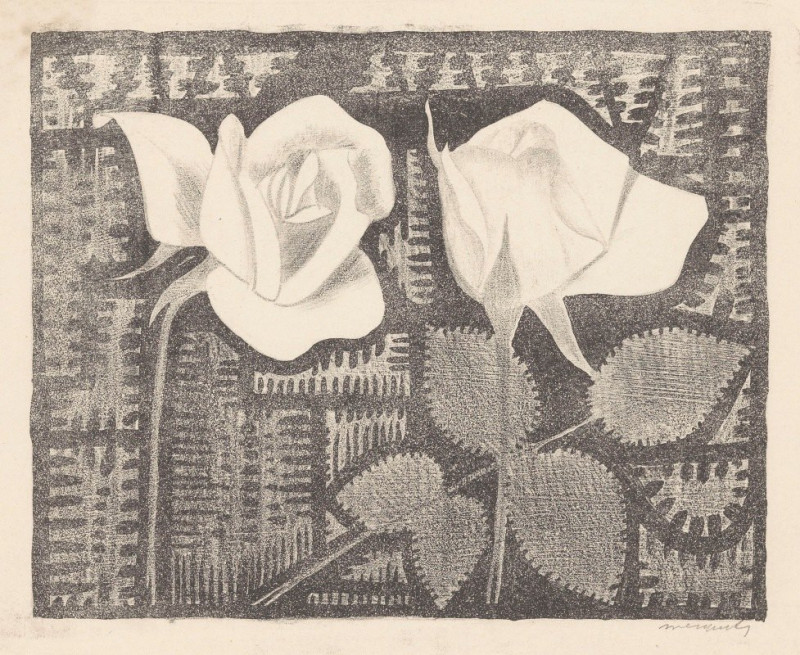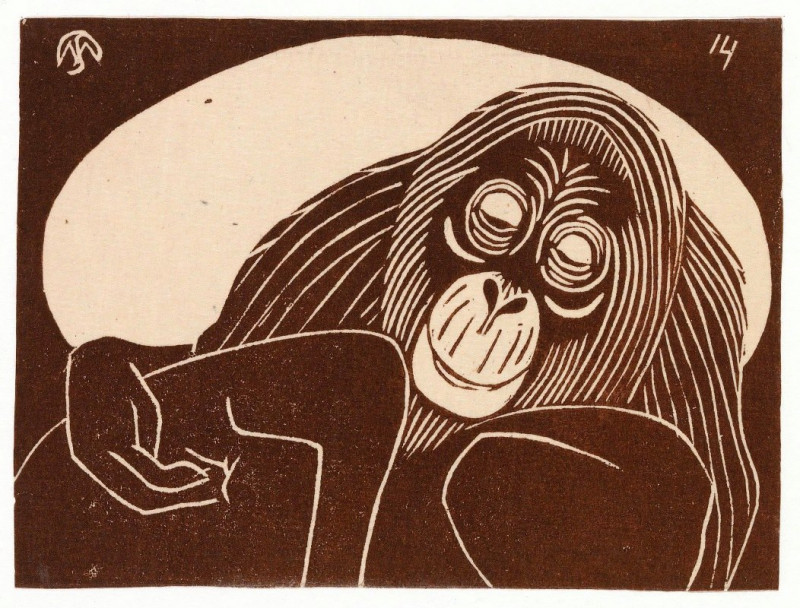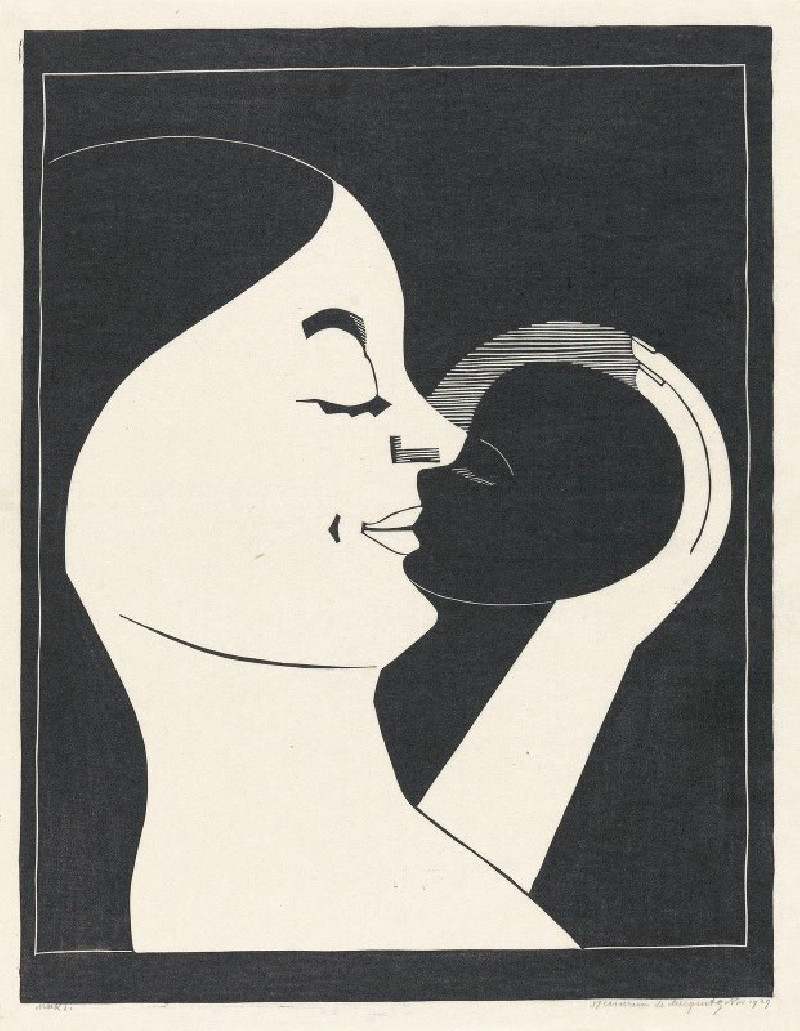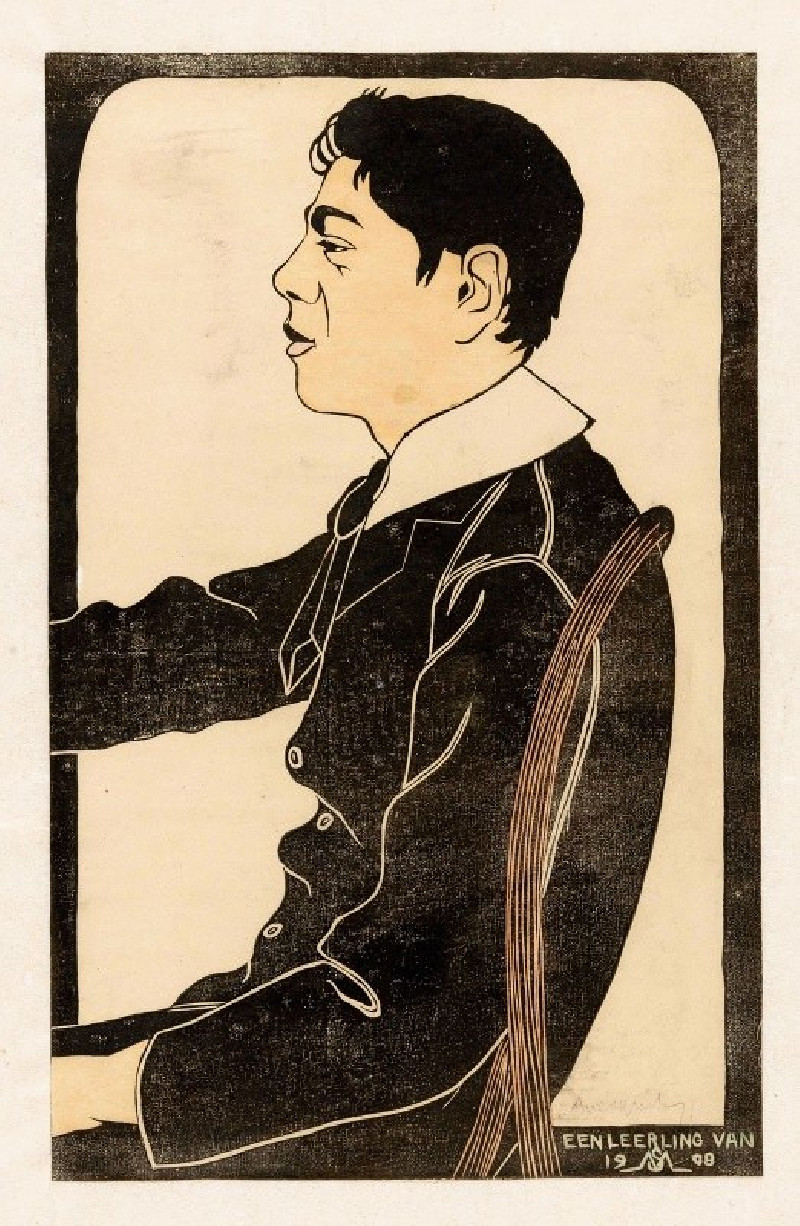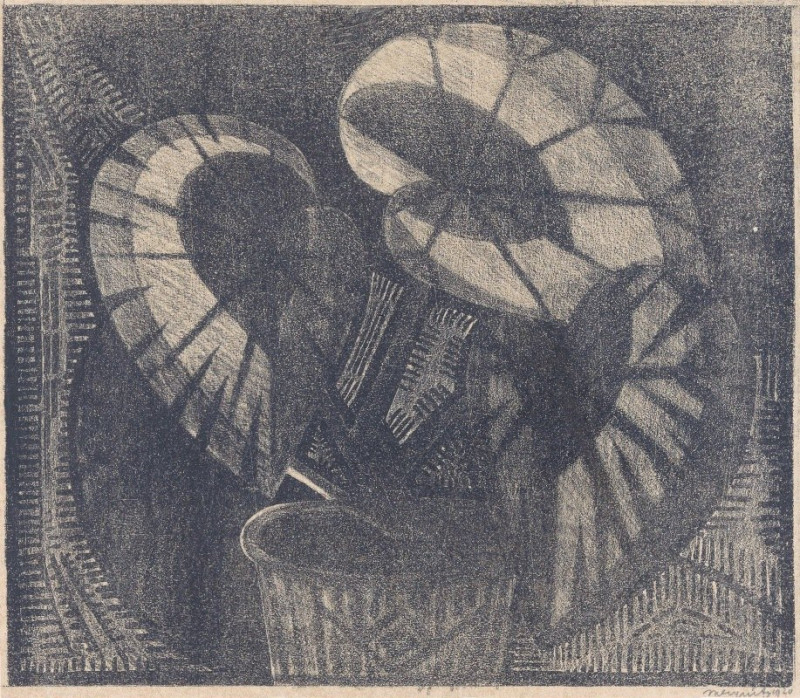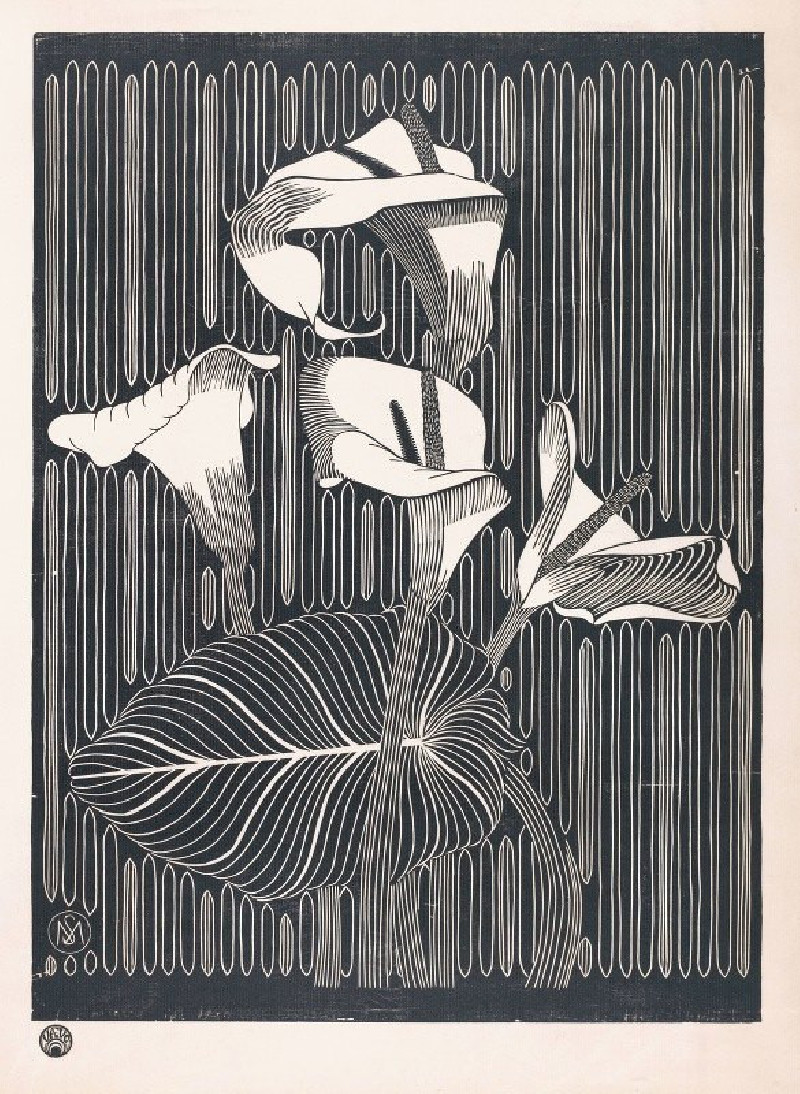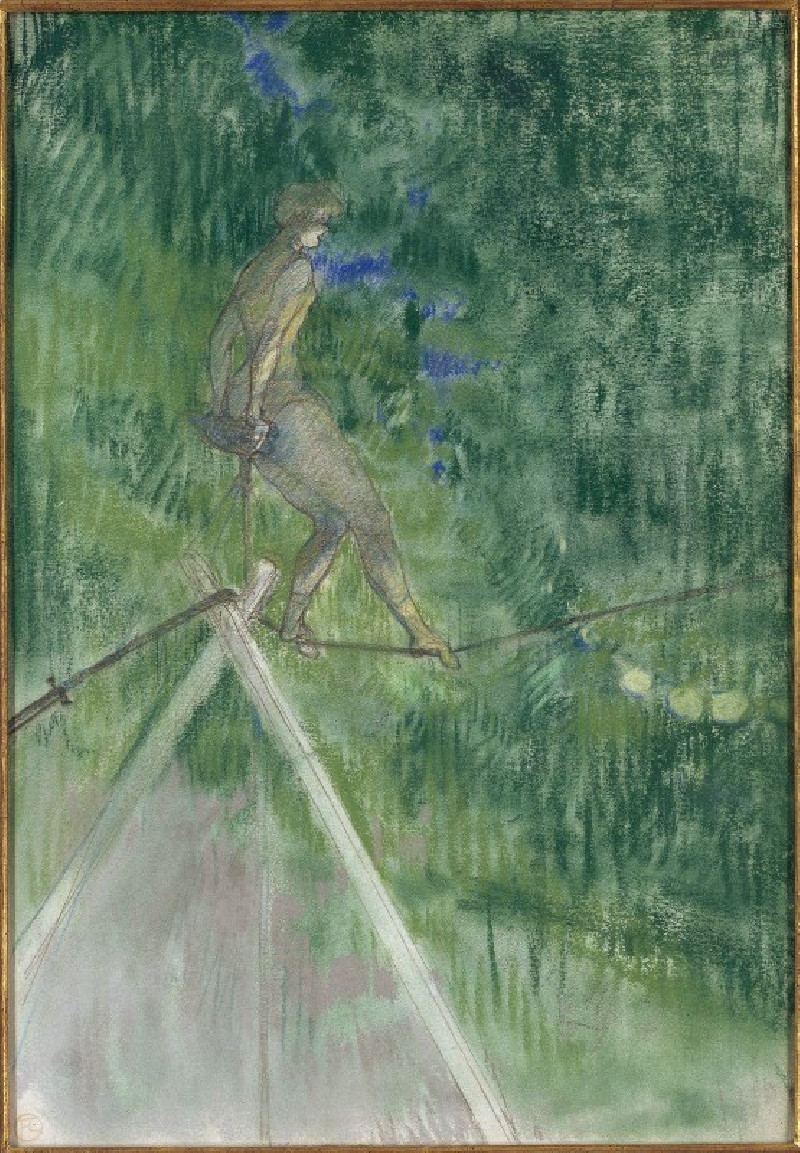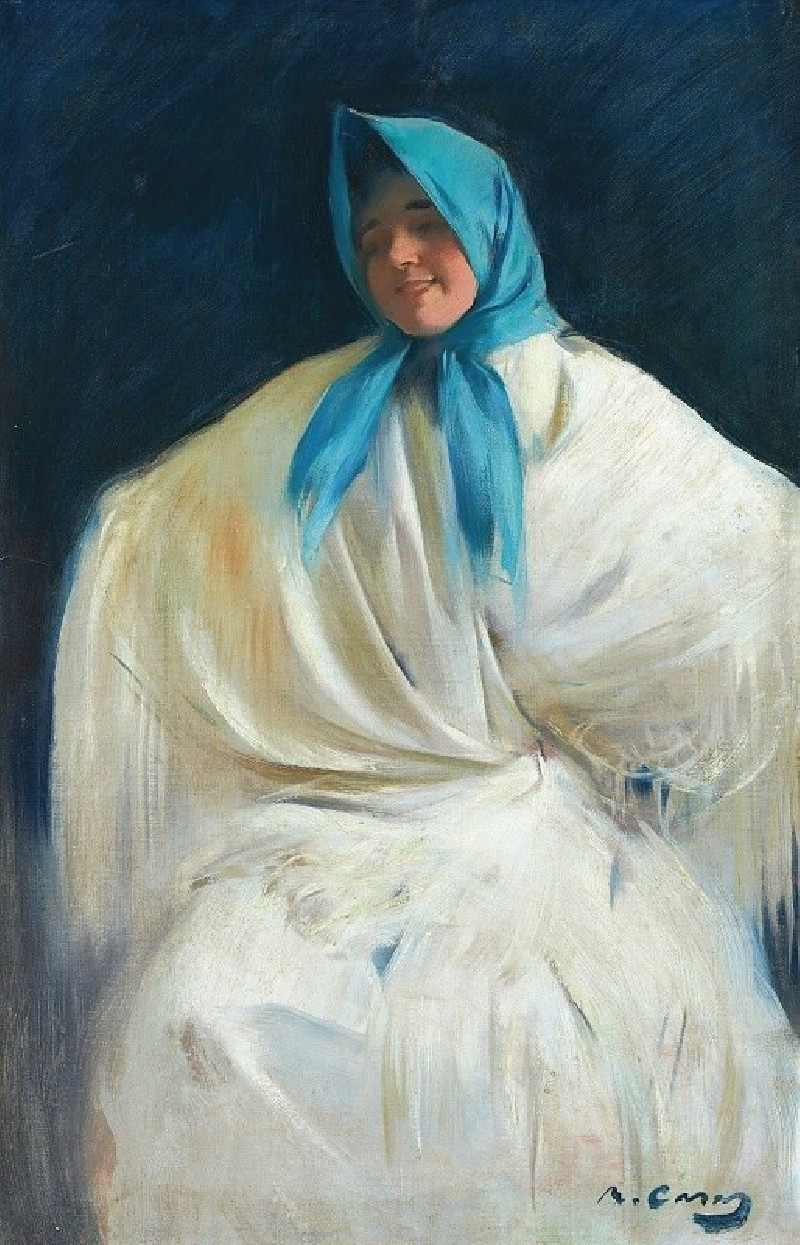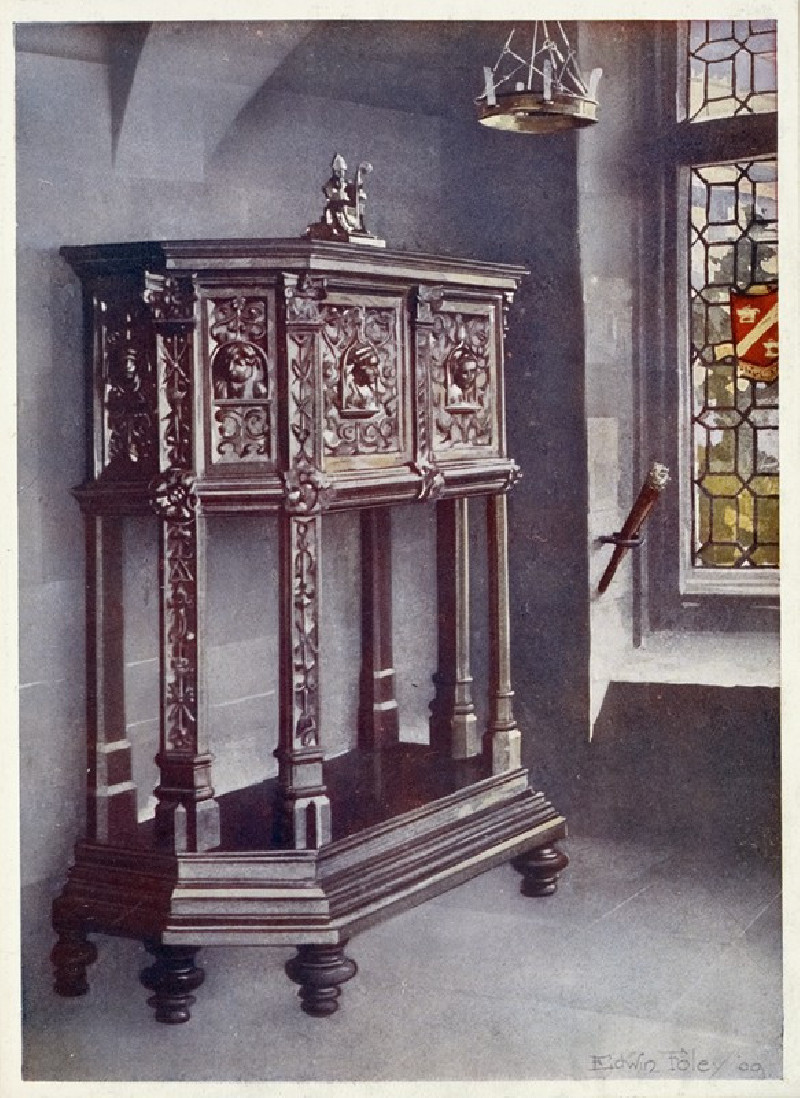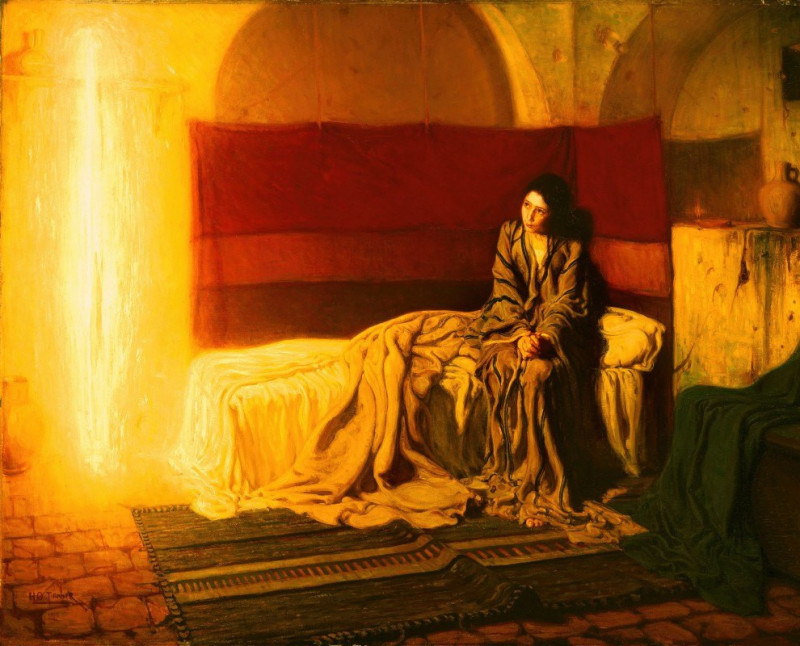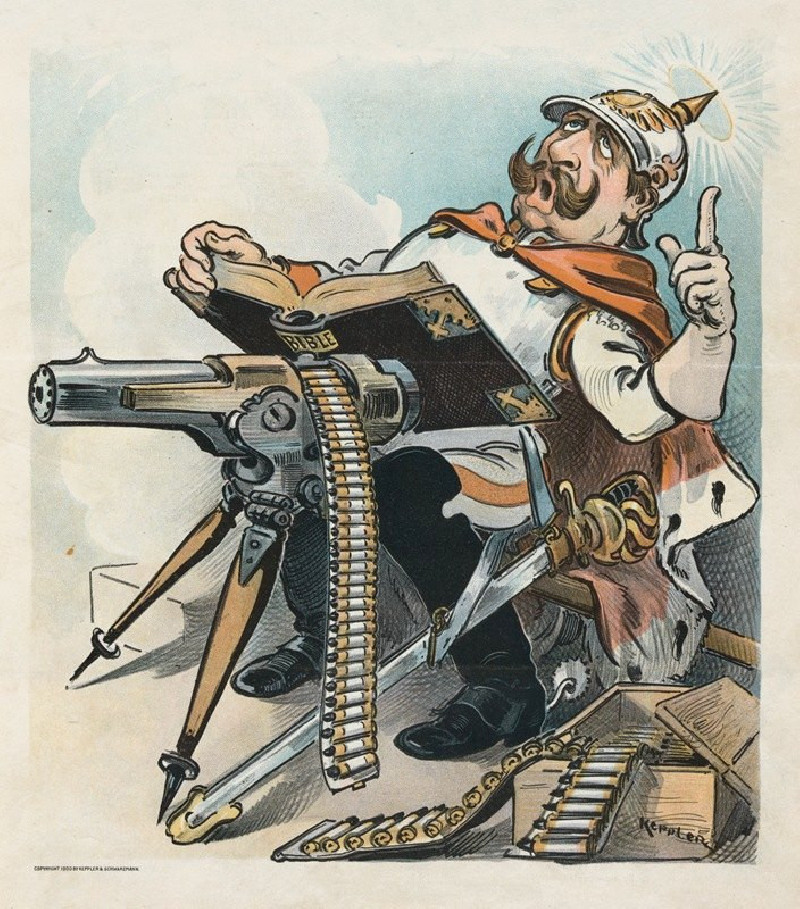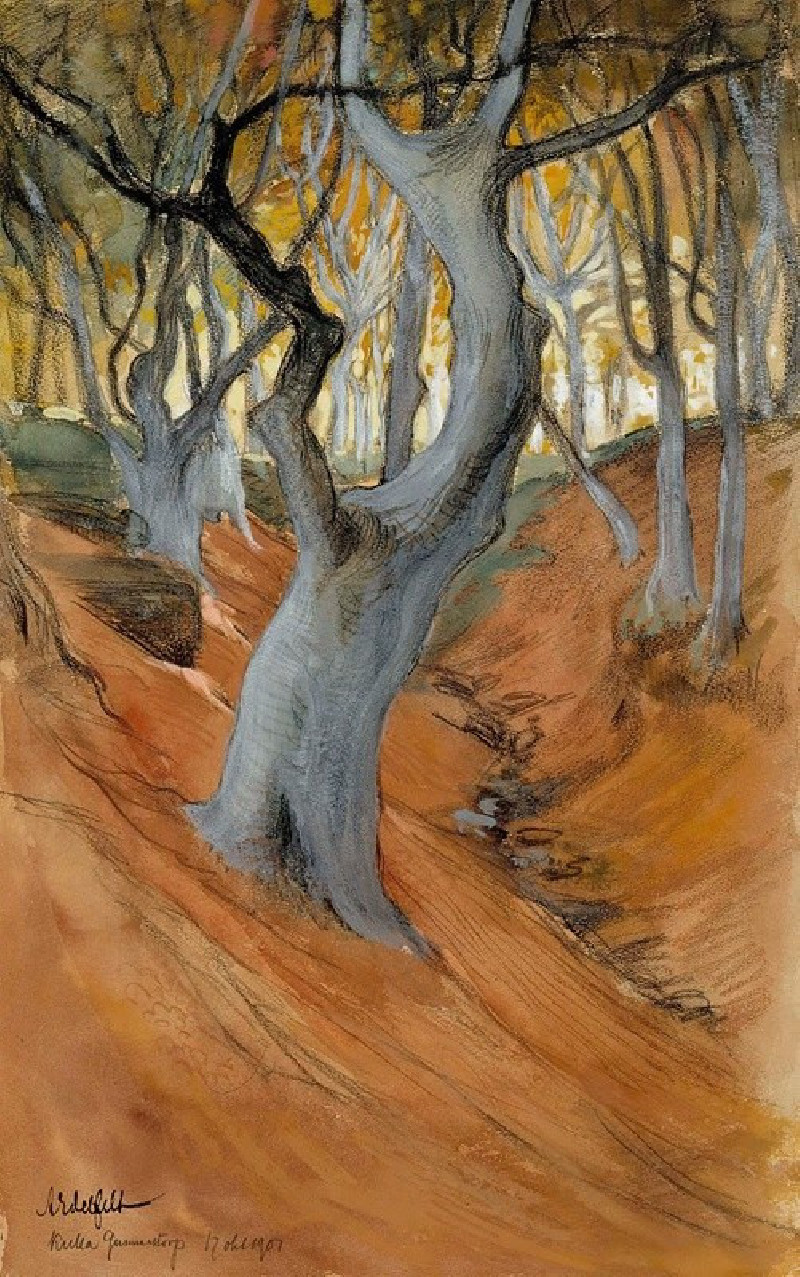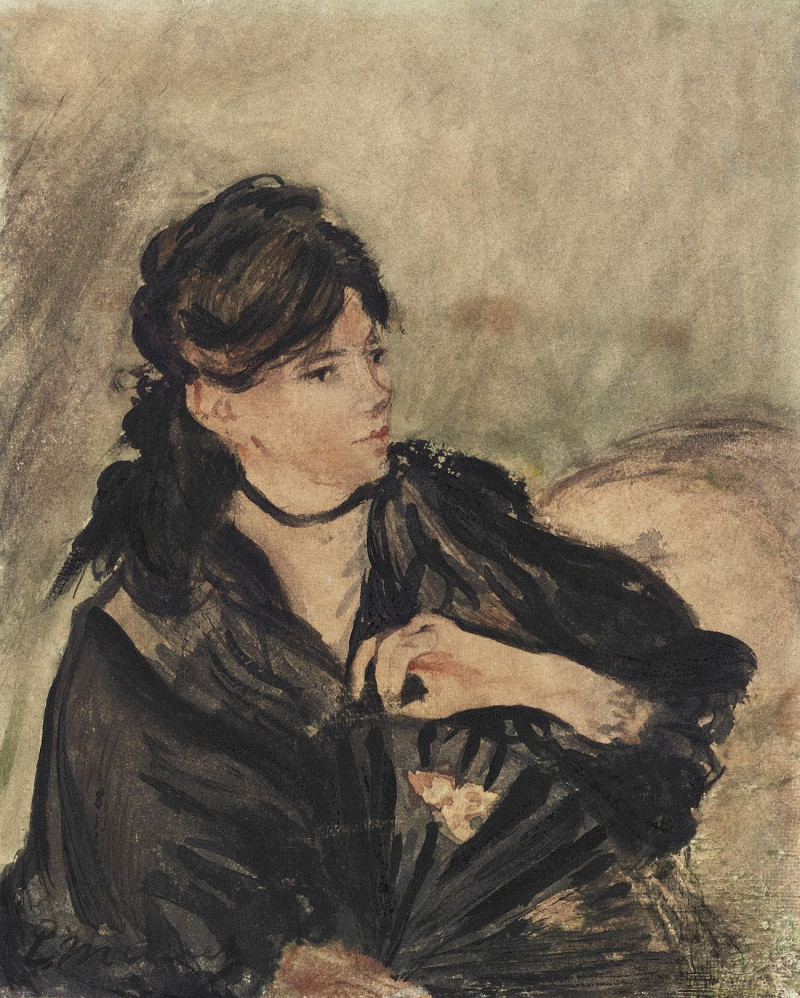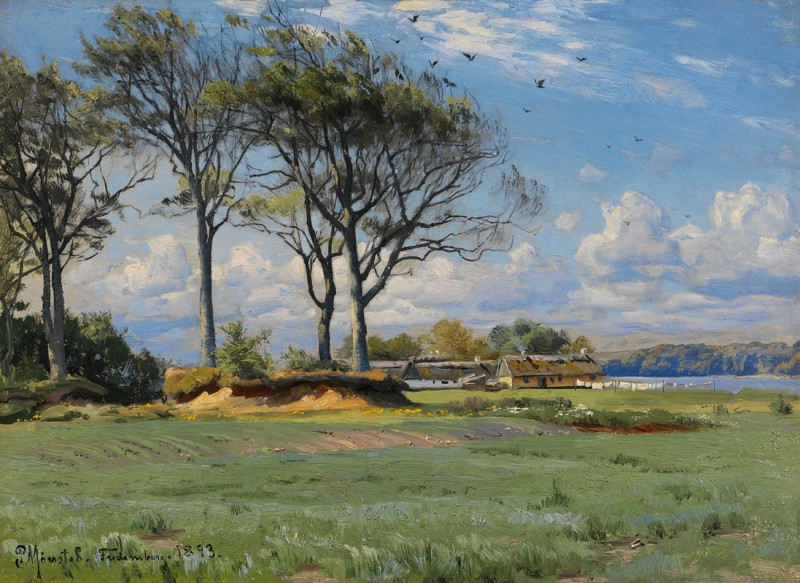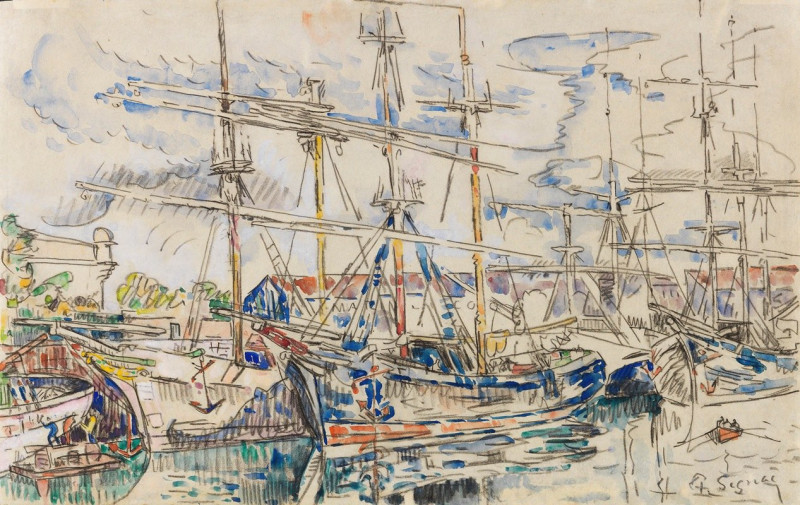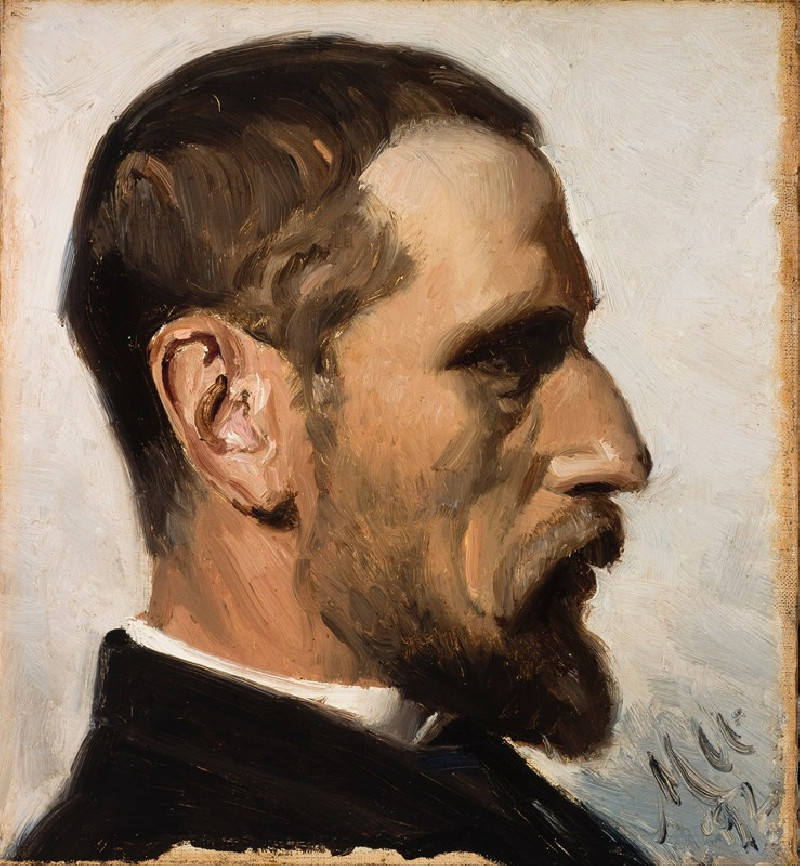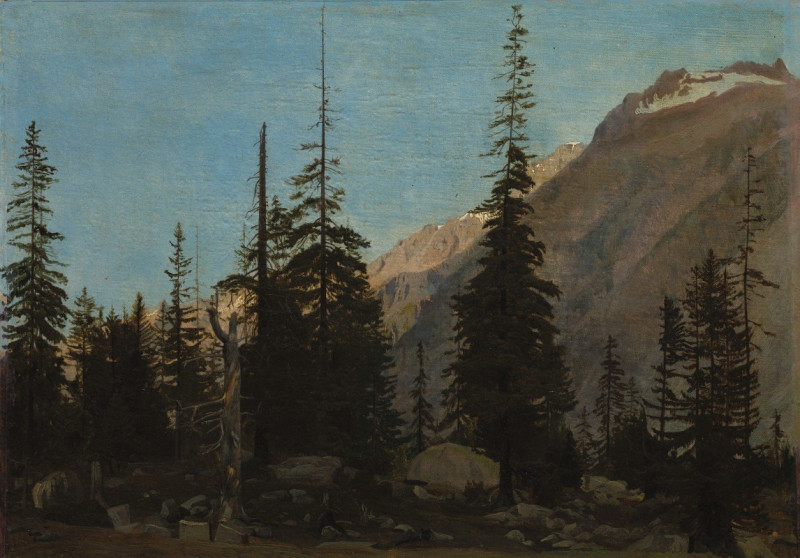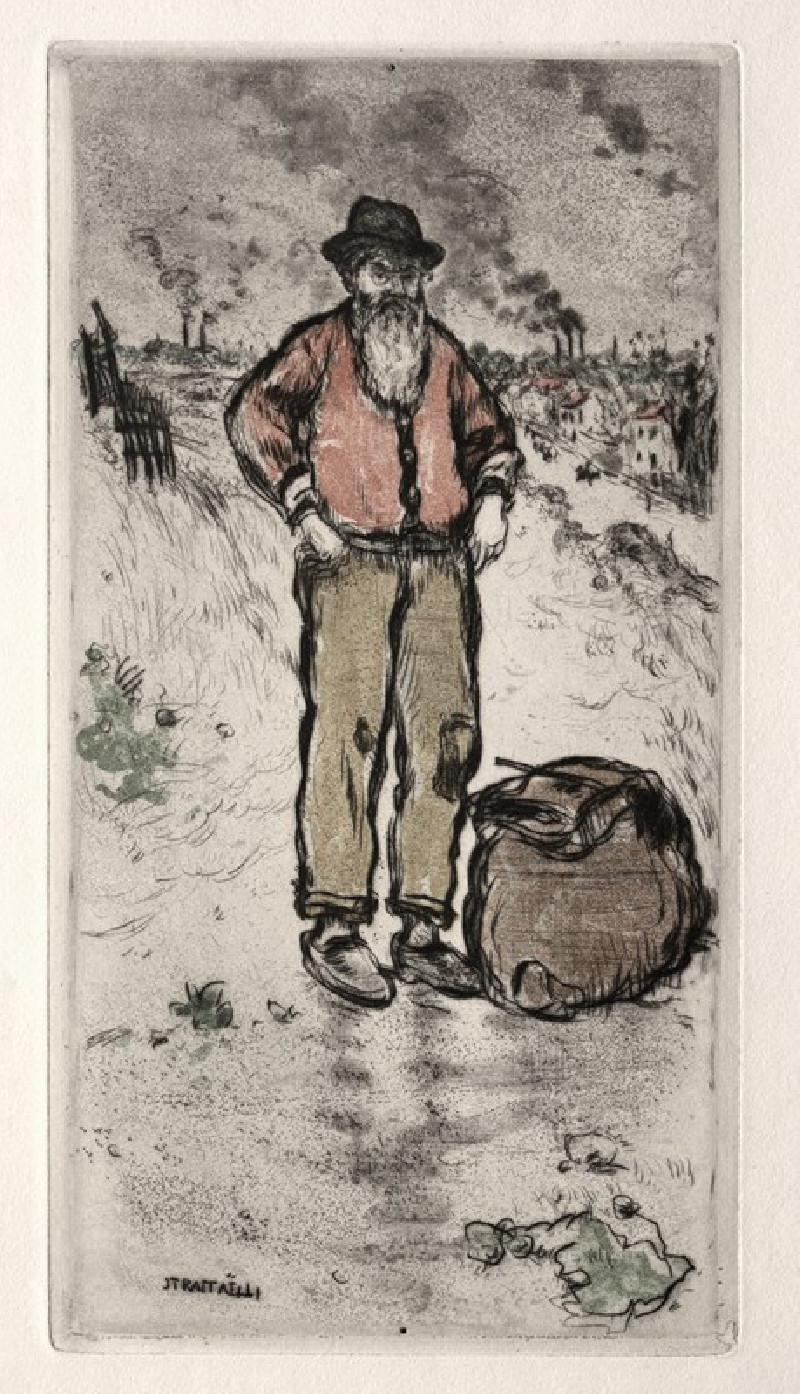Twee rozen (1920)
Technique: Giclée quality print
Recommended by our customers
More about this artwork
Welcome to an exploration of Samuel Jessurun de Mesquita's evocative artwork, "Twee rozen" (Two Roses), crafted in 1920. This striking piece captures the delicate beauty of two roses in full bloom, exquisitely detailed to highlight each petal's gentle curve and soft texture. The flowers stand out against a darker, intricately patterned background, which adds a dramatic contrast and depth to the composition.The artist employs a monochromatic palette that plays with shades of grey and black, allowing the viewer to focus on the form and symmetry of the roses. Subtle textures and the careful play of light and shadow bring the blooms to life, showcasing Jessurun de Mesquita's mastery in handling complex patterns and organic forms.The background features an array of geometric and abstract motifs that suggest a tapestry-like quality, adding a rich visual layer and possibly hinting at deeper symbolic meanings. "Twee rozen" not only celebrates nature's beauty but also demonstrates the artist’s skill in creating a visually captivating and emotionally engaging work.
Delivery
Returns
Samuel Jessurun de Mesquita was a Dutch graphic artist active in the years before the Second World War. His pupils included graphic artist M. C. Escher (1898–1972). A Sephardic Jew, in his old age he was sent to Auschwitz by the Nazis, where he was gassed along with his wife. After the war, de Mesquita was largely forgotten.


